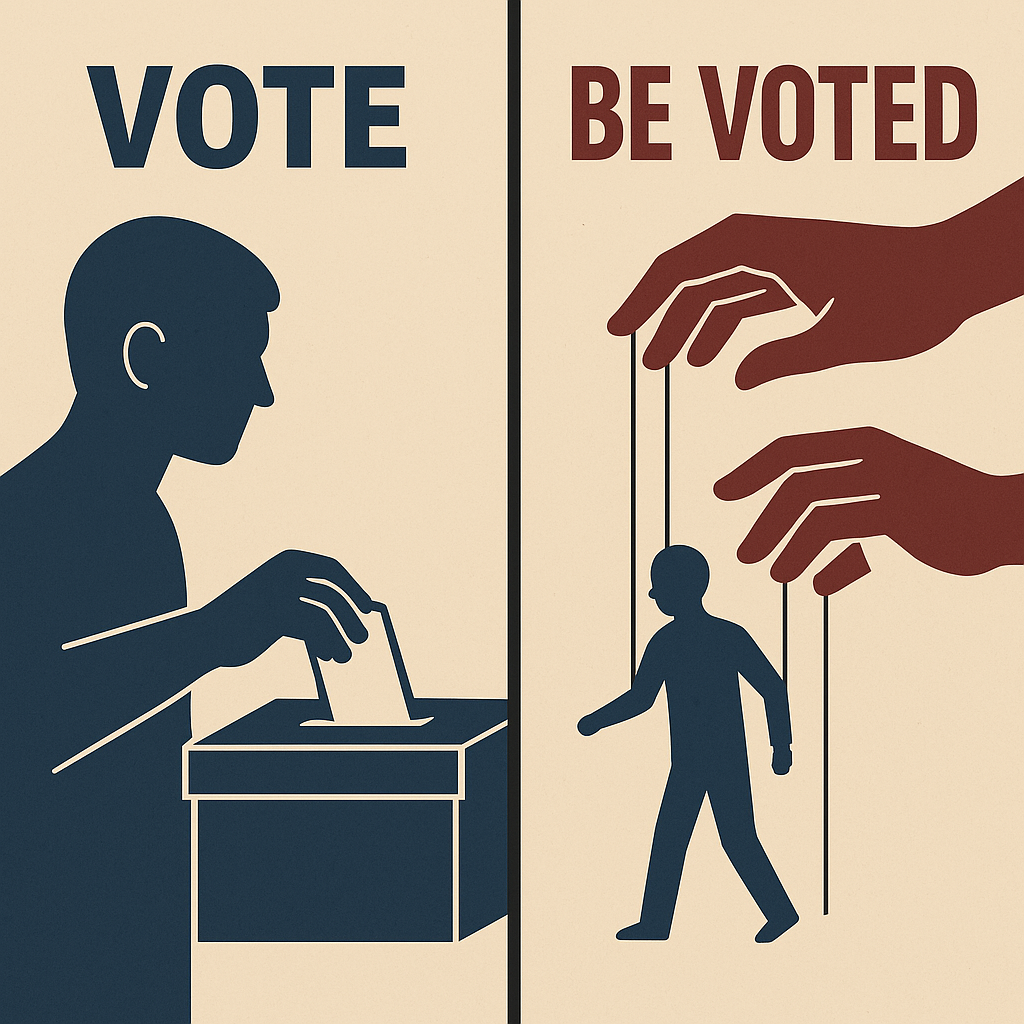When Democracy Becomes a Contest of the Lesser Evil: Rethinking the U.S. Electoral System

In recent years, the U.S. presidential election has increasingly resembled a contest not of ideals or competence, but of choosing the lesser evil. The 2024 race exemplifies this trend more than ever before, revealing not only a decline in candidate quality but also deeper structural flaws in the American electoral system.
1. The Harsh Reality: Voters Choosing Among the Unqualified
Historically, U.S. presidential candidates often stood out for their vision, leadership, and public appeal—figures like John F. Kennedy, Ronald Reagan, and Barack Obama captured the imagination of the electorate. In contrast, today’s candidates appear either extreme and polarizing or uninspired and underwhelming. The 2024 election showcases this stark shift.
Take Donald Trump, for example. Known for off-the-cuff remarks, contradictions, and evasive responses, his credibility is frequently questioned. And yet, he remains a strong contender, not necessarily because voters admire him, but because they see no better alternative. On the other side, Democratic candidates often appear overly idealistic yet weak in execution—failing to deliver effective governance and leaving many disillusioned.
When voters are forced to choose between extremes or settle for mediocrity, democracy begins to lose its substantive meaning.
2. Limited Choices in an Illusion of Freedom
At face value, the U.S. election system is one of the most participatory and open in the world. But in reality, it’s a carefully filtered process. By the time a candidate appears on the general election ballot, they’ve already been vetted by party machinery, fundraising power, and media visibility. True democratic participation becomes a matter of picking from a pre-approved list.
Talented individuals with genuine visions often get eliminated early due to lack of exposure, campaign funding, or media attention. The system favors those who play the game well over those who may govern well. This disconnect between popular engagement and meaningful choice undermines the spirit of representative democracy.
3. Polarized Politics: The Death of the Center
The dominance of the two-party system in the U.S. has led to increasing polarization. Republicans have veered further into right-wing populism, while Democrats lean heavily into progressive ideology. In this hyper-partisan climate, moderate and pragmatic voices struggle to find space.
This ideological tug-of-war has paralyzed policymaking, intensified public frustration, and further narrowed voter options. Political debate becomes a shouting match rather than a forum for nuanced ideas, and voters are forced to pick sides in a zero-sum game rather than evaluate candidates on merit.
4. Ethical Decline and the Fading Boundaries of Civility
Beyond policy and partisanship, a deeper concern lies in the moral and ethical erosion of leadership. In authoritarian systems, corruption is often hidden. In contrast, the U.S.—a self-proclaimed beacon of transparency—now sees open nepotism, self-enrichment, and institutional erosion go largely unchecked at the highest levels of power.
When leaders publicly prioritize family gain or bypass legal accountability without consequence, the line between democracy and dysfunction blurs. If these behaviors become normalized, the very foundation of democratic ethics is at risk.
This pattern reflects a broader global issue: as powerful nations ignore the interests of weaker ones and dismiss the need for global justice, the world edges closer to a system ruled by brute power rather than shared values. If we abandon fairness and principles in favor of sheer dominance, what remains of civilization?
5. The Way Forward: Structural Reform and Institutional Courage
The problem is not democracy itself but how it’s implemented and sustained. If democracy is to serve its intended purpose—empowering citizens and producing capable leaders—it must evolve.
Several reforms could help redirect the U.S. electoral process toward a healthier path:
- Broaden candidate eligibility with more inclusive nomination systems
- Encourage independent or third-party voices to break the two-party monopoly
- Limit the influence of money and media on electoral outcomes
- Rebuild public institutions to support transparency, accountability, and civil discourse
These steps won’t produce overnight change, but they’re necessary if democracy is to regain its credibility and effectiveness.
Conclusion: Seeking Real Choice in a Hollowed Democracy
In an increasingly surreal global landscape, the gap between the ideals of democracy and its practice is growing. When elections become a mere ritual of selecting the least disappointing option, the soul of democratic governance is in jeopardy.
It’s time to ask: Are we satisfied with the illusion of choice, or do we want a system that gives the best among us a fair chance to lead?
Perhaps the solution is not just changing who we vote for—but changing the system that determines who gets to run.